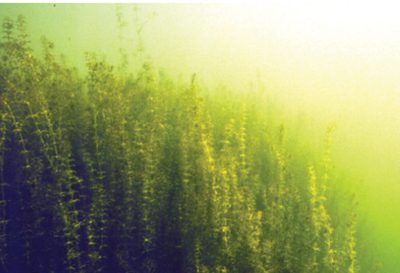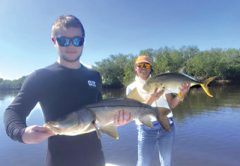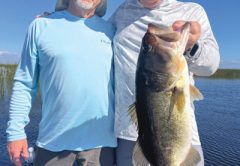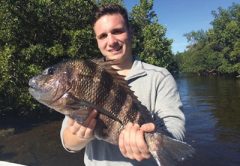 What are the Effects of Warm Water on a Fishes Metabolism?
What are the Effects of Warm Water on a Fishes Metabolism?
Summertime in Florida often means one thing: it’s hot!! As air temperature rises, water temperatures increase as well. Lake water temperatures can reach upwards of 90 degrees or more during the summer months, and that will change dramatically how a fish behaves and, for the fisherman, how to best target them.
Warmer water increases a fish’s metabolism, causing them to expend more energy and, as a result, they feed more often. However, warmer water also contains less oxygen, which can slow down a fish’s feeding response. While you would think that fish would have the desire to hang out in deeper water where it’s cooler, deeper water also often contains less oxygen, particularly if there is a thermocline present.
This means that at a certain depth, there is little to no oxygen in the water, so fish are unable to survive. Fish like to find that sweet spot where there is cooler water, but still ample oxygen. Fish will also hide out in places with lots of shade, such as areas of vegetation, downed trees, and docks. This will provide them with opportunities to hide from other predators and avoid direct sunlight. Often, areas of a lake that have lush, green vegetation will have high oxygen concentrations as well, so baitfish, and in turn, sportfish, will utilize those areas.
When you’re fishing in the summertime, remember to pack plenty of water, wear sun-protective clothing and hats, and always have sunscreen handy. If you’re fishing on Lake Istokpoga, be mindful of lower lake levels that may impact navigation. Also, as we get into the rainy season, be aware of weather cues that may indicate a storm is moving in. Be safe out there!
— Sara Menendez, M.S. | Freshwater Fisheries Biologist III at Florida Fish and Wildlife Conservation Commission
If you have any comments on any information related in this article, please reach out to Sara Menendez at sara.menendez@myfwc.com.

 What are the Effects of Warm Water on a Fishes Metabolism?
What are the Effects of Warm Water on a Fishes Metabolism?




